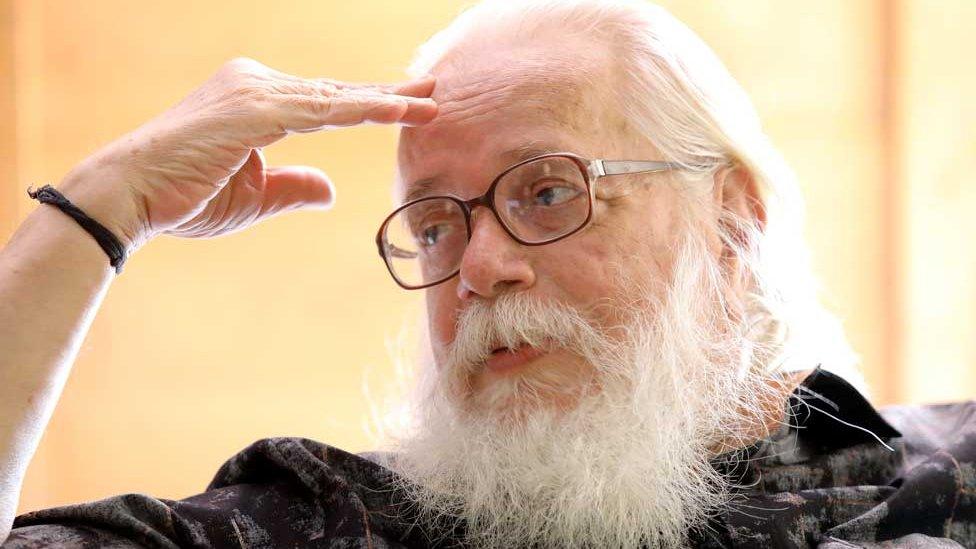An 'unhappy marriage' that has saved thousands of lives
- Published
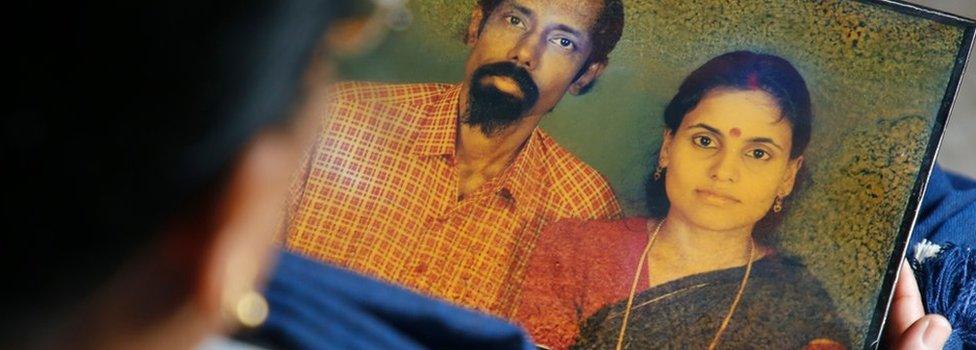
Arranged marriages can often throw up surprises. Uma Preman's unhappy marriage transformed not only her life, but also the lives of thousands of others - because it left her with the skills and motivation to help disadvantaged Indians gain access to medical treatment.
The moment
Uma always dreamed of a perfect wedding in a traditional south Indian temple. She imagined it decorated throughout with colourful flowers - and a big party by the beach.
But it never happened.
Uma still remembers the grey February morning 30 years ago when her mother introduced her to Preman Thaikad. Uma was only 19, and Preman was 26 years older.
They had never met before, but she was told he was her husband. There were no festivities and no music - in fact there wasn't even a wedding.
"My mother told me that I was now Preman's property. He told me that I was his wife but I had no rights over his property," says Uma.
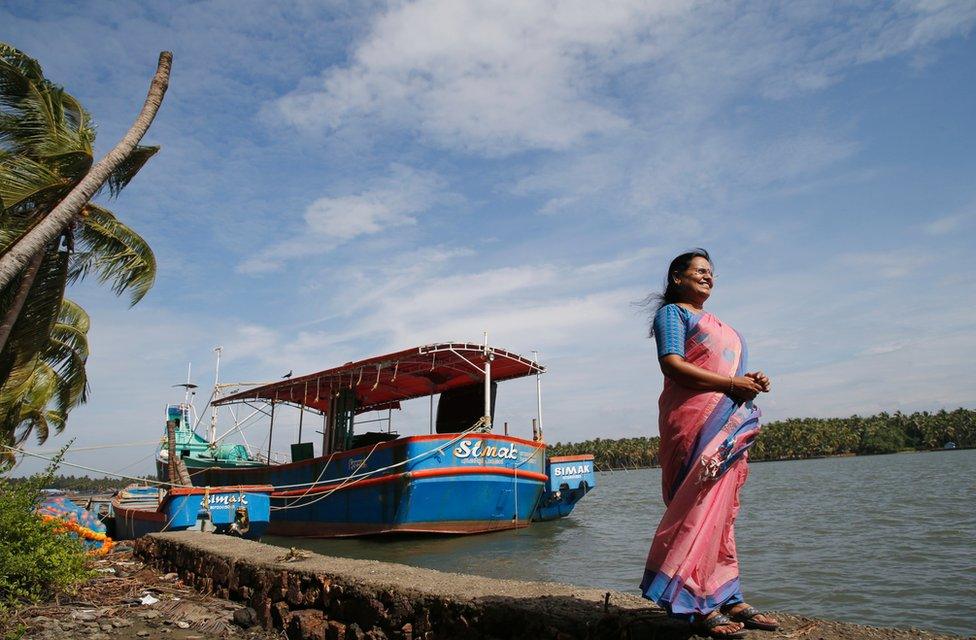
Preman took her to his house and left her there for the night. She still remembers that she couldn't sleep and just stared at the pale yellow ceiling and the rickety fan.
The next morning, Preman returned at 6am and asked her to accompany him to a bar. He kept drinking for several hours while she sat in silence, trying to figure out the strange direction her life had taken.
He told her that she was his second wife, but she quickly learned that she was actually his fourth. He also revealed that he had a severe form of tuberculosis - and that her main job was to be his carer.
Before
Uma grew up in Coimbatore, a busy town in the southern Indian state of Tamil Nadu. As a child, she wanted to become a doctor like her father, TK Balakrishnan.
Balakrishnan had studied medicine for a year before his uncle asked him to drop out and work on his farm. He had learned the basics and would use his knowledge to dress wounds, change dressings and treat fevers with basic medicines. Uma heard that the families of the patients would often give him treats - so she began to accompany him on his rounds.
"I just loved food and eating and that's why I went with him," she says.
But one day she saw something that made her realise how serious her father's work was. Her father was treating a patient with gangrene. The stench, Uma says, was unbearable.
"He was using gardening gloves because he didn't have surgical ones, but he was so calm."

Find out more
Listen to Outlook on the BBC World Service for extraordinary first-person stories from around the world
See below for more stories in the Interrupted Lives series, produced by the BBC's Geeta Pandey in Delhi

But Uma's mother hated the fact that her husband was spending most of his time helping others, Uma says.
When she was eight, her mother gave her some money to buy firecrackers for the Hindu festival of Diwali - and when she came back, her mother was gone.
"I found out later that she loved another man and she left with him," Uma says.
Suddenly it was up to Uma to take care of her three-year-old brother. She says she didn't know how to cook, but she decided to learn because she couldn't bear the food her father made for them.
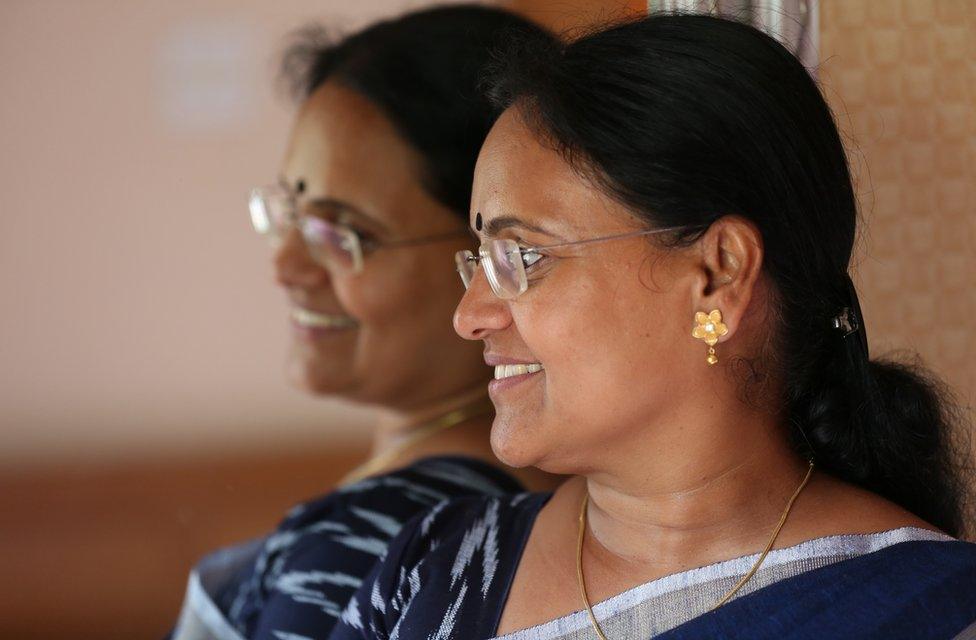
"I went to nearby homes and requested the ladies to teach me. They said I wouldn't be able to cook because I was small," Uma says. But within days they had taught her to make a variety of dishes, and cooking became part of her daily routine.
"I would wake up at 5am to make breakfast and lunch. Then I would go to school at 9am. I would come back in the evening and take care of my brother and cook dinner," Uma says.
"My friends played every evening - they were enjoying their life. But I was happy taking care of my family."
She kept thinking about her mother though, and worrying that she might never see her again.
Years later, when Uma was 17, she went with some neighbours to visit a famous temple in Guruvayur - 87 miles from Coimbatore - and there she met a man who told her he'd seen a woman who looked exactly like her.
Uma left her address with him and a few days later a letter arrived in the post.
It was from her mother.
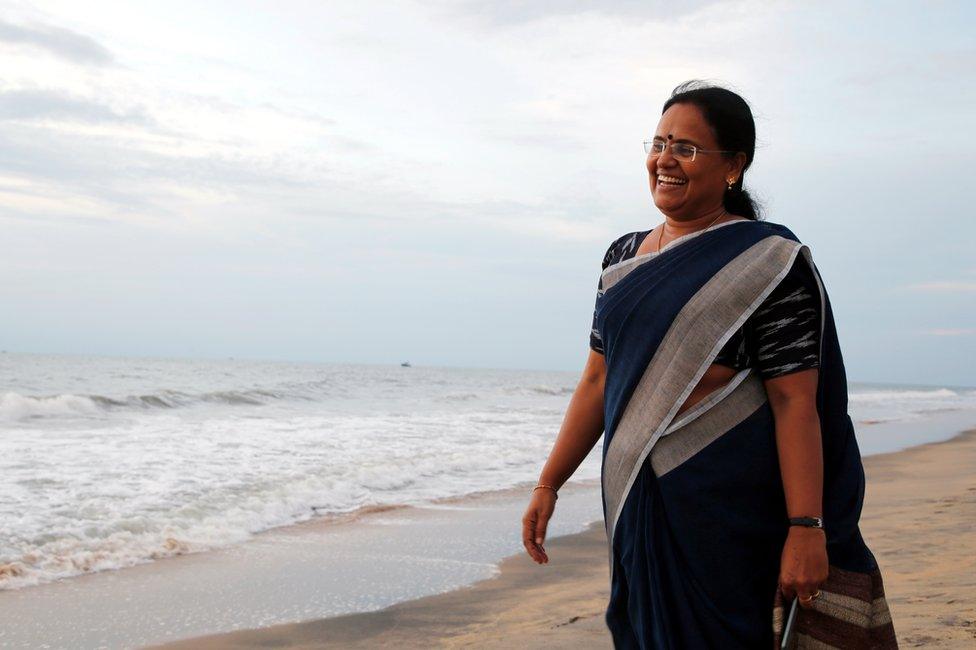
Uma rushed back to Guruvayur to be reunited with her, but it quickly became clear there was a problem. Her second husband had borrowed large sums of money, then abandoned her - and the lenders were demanding payment.
"I would see people coming to her house every day to harass her for money," Uma says. "It was painful to see."
Her mother's solution was for her to marry Preman, who was wealthy enough to clear her debts. Uma was reluctant. She tried to get work instead, but failed. Then she returned to her father - but he felt betrayed by her decision to resume contact with her mother, and turned his back on her.
Eventually, Uma gave in.
"I felt worthless. I just accepted my fate and went with Preman."
After
"Every day before he left for work, Preman would lock me inside the house," Uma remembers.
"I wasn't allowed to meet anybody or to go out - not even for a minute. For six months, I was alone. I started talking to walls. I lost my confidence and self-respect."
As the years passed, Preman's tuberculosis worsened. The couple started spending most of their time in hospitals, and in 1997, seven years after Uma had moved in with him, Preman died. Although he had once said she would have no right over his property, he left her comfortably off.
Uma says she felt free for the first time in her life.
"I didn't want him to die, but I couldn't help but feel that life had given me a second chance."
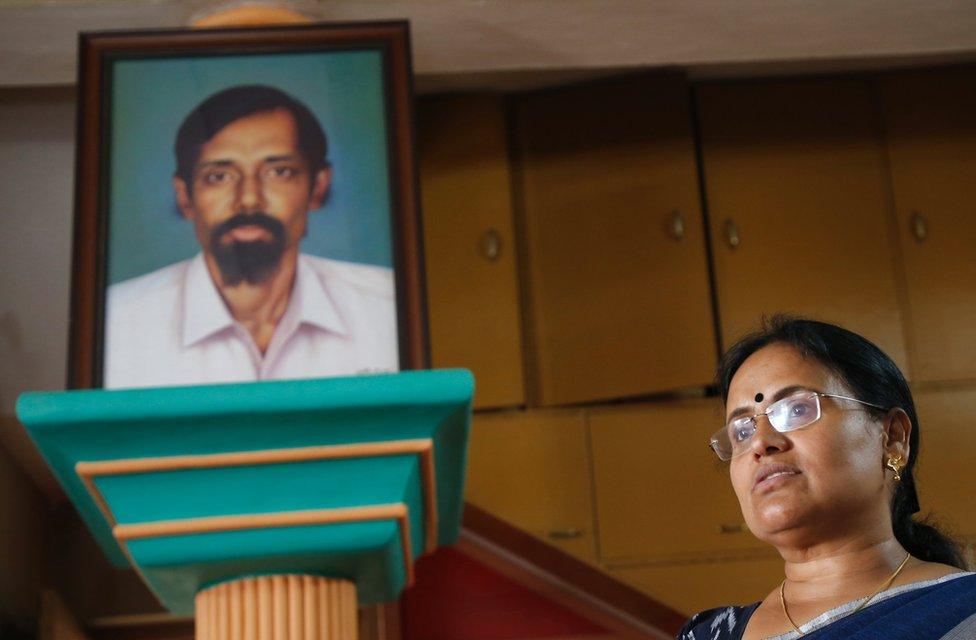
Uma with Preman's portrait in the background
It took a while for it to become clear what she would do with this new freedom.
During her years with Preman, Uma had observed that poor people were often unable to get proper medical treatment, not only because they couldn't afford it but also because they didn't have the right information - they didn't know what treatments and facilities were available.
So Uma had started helping them, filling in forms for them, guiding them to the right doctors and sometimes just listening to their problems.
When she left the hospital in Trivandrum where Preman had spent the last six months of his life, she was missed. But she wasn't completely beyond reach. There was a booth where she had often called Preman's family, she says, and the person who owned it gave her number to people in need of help.
Soon hundreds of people started calling for advice and that's how the Santhi Medical Information Centre was born. Uma had found her life's calling - she wasn't treating people, as her father had done, but she was helping them get treatment.
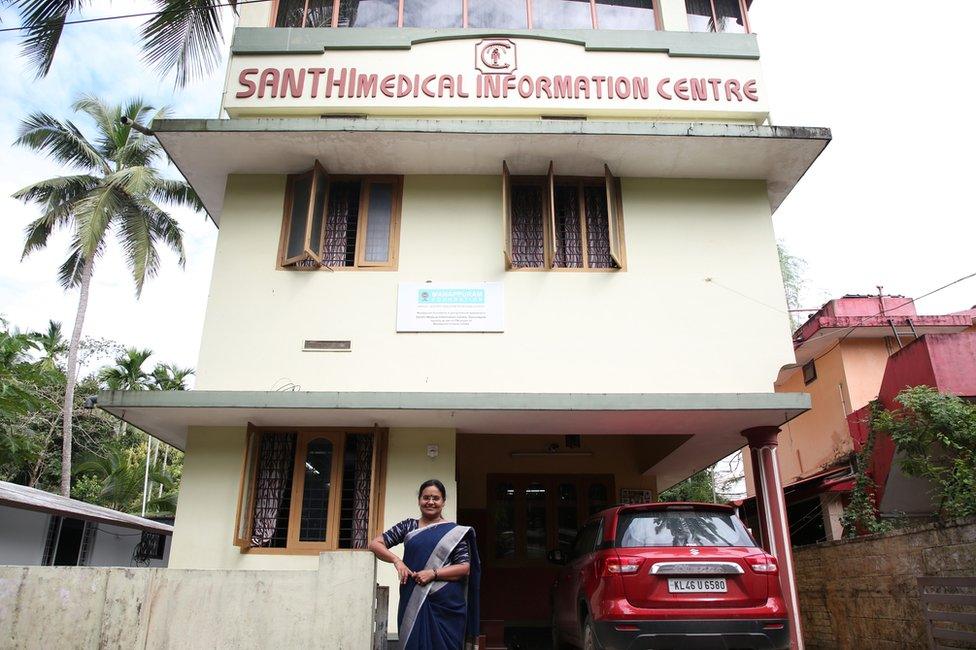
However, to help other people Uma had to acquire knowledge herself, and in the late 1990s the internet wasn't yet widely available in India. She had to travel across the country to collect data about treatments, hospitals and the places where people could get free or subsidised treatment.
"I had to travel because no hospital replied to my letters," she says.
Even when she met people face to face, they often didn't take her seriously. In other Indian states there was also a language barrier, as Uma spoke only Tamil.
In the past decade, the Santhi Centre's top priority has been helping people with kidney disease.
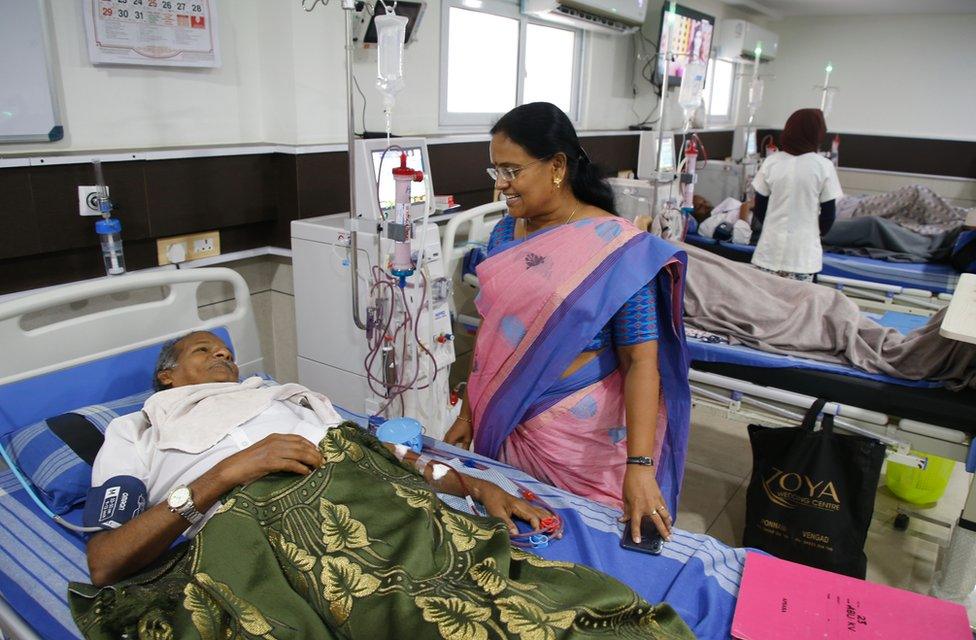
There are not enough dialysis centres in the country and the rate of kidney donation is poor. Uma has been working to change this, raising funds for new facilities open to all.
"Our first dialysis centre started in Thrissur district in Kerala. Now we have 20 centres across India. Many rich people donated for the cause," she says.
Uma says persuading people to donate a kidney is not easy because they often worry about the impact on their own health.
So she decided to set an example, and donated one of her own kidneys. She gave it to an orphan whose kidneys had failed.
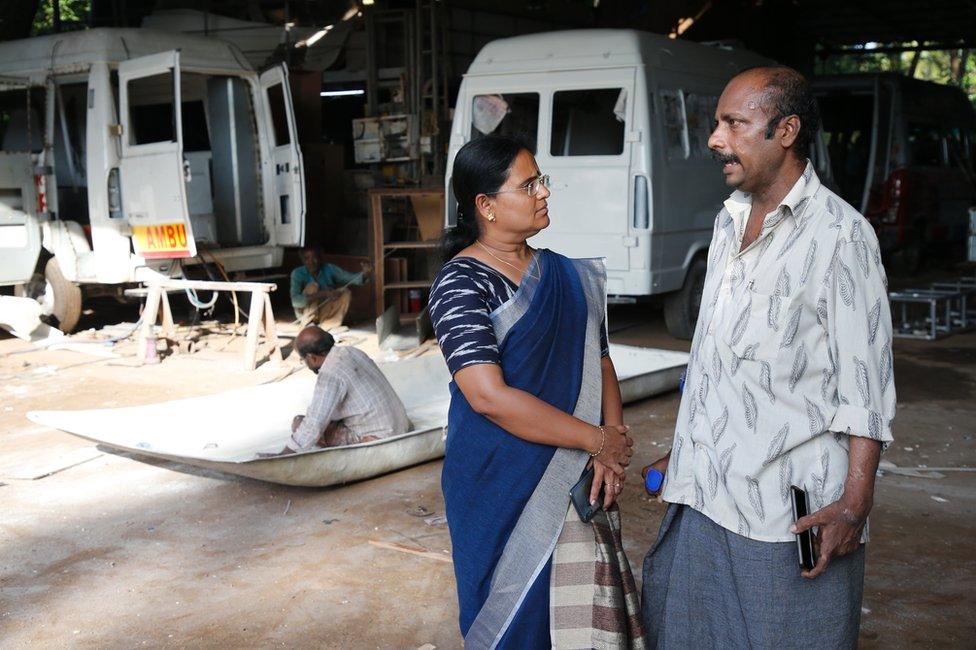
One of Uma's kidneys enables Salil to live a normal life
Salil says he owes his life to her.
"I was 26 when I was undergoing dialysis. When she met me, she told me that she would donate her kidney on the condition that I continued to work after the transplant."
He did continue to work - in fact, after a while he went to work for Uma.
Salil says Uma is a woman who truly believes in Mahatma Gandhi's words that "you have to be the change you want to see".
"Everyone wants to change the world but no-one is ready to change themselves," Uma says. "I changed my attitude and I donated one kidney, but I also got a brother in return."
All pictures by Sivaram V

- Published4 February 2020
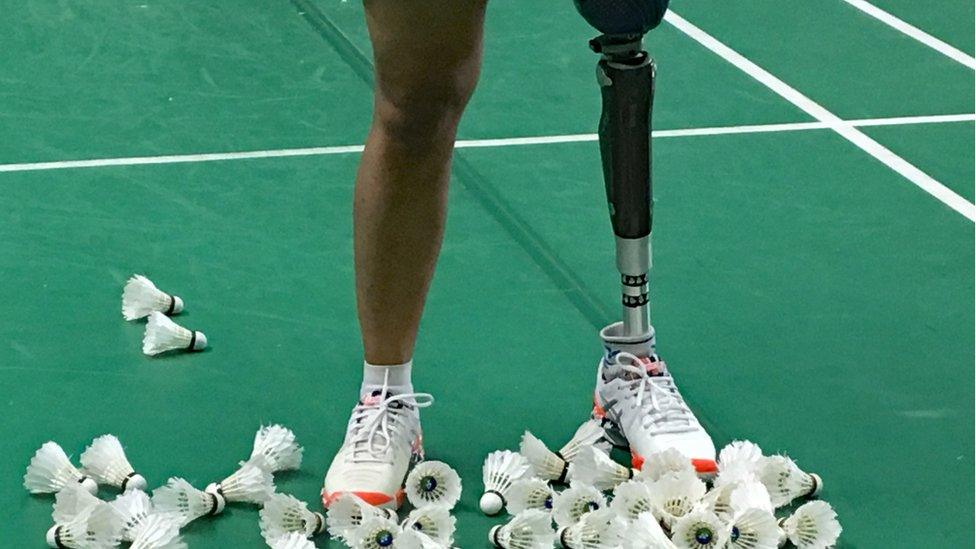
- Published29 January 2020
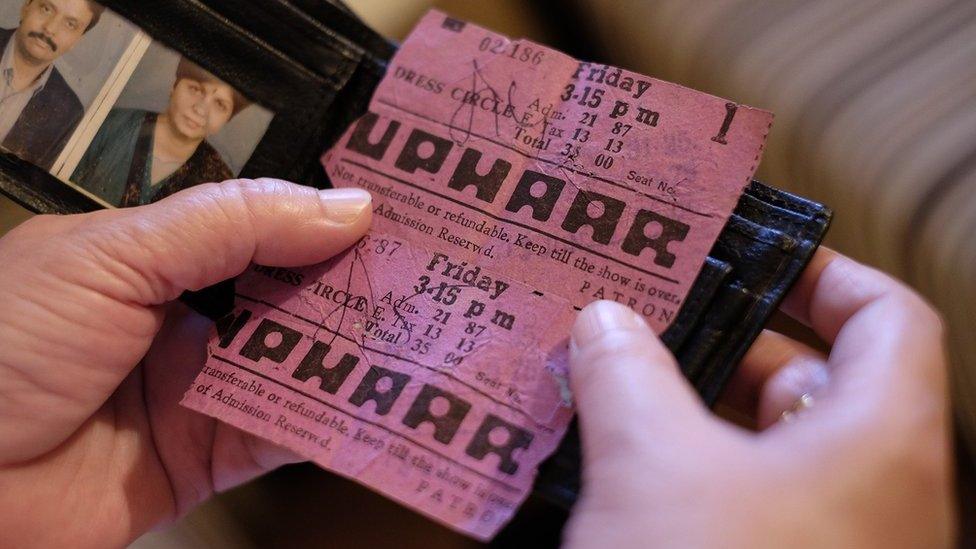
- Published27 January 2020
